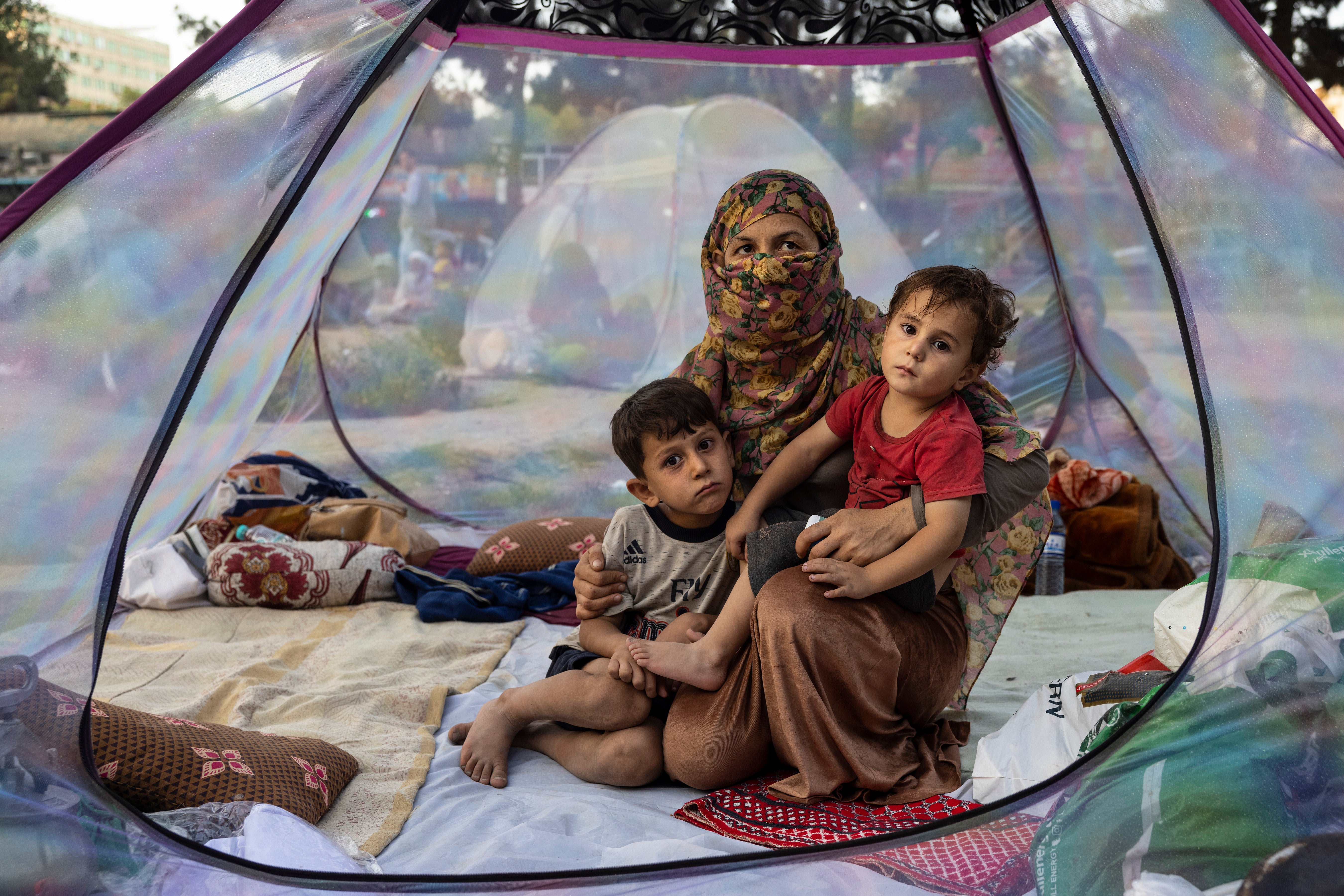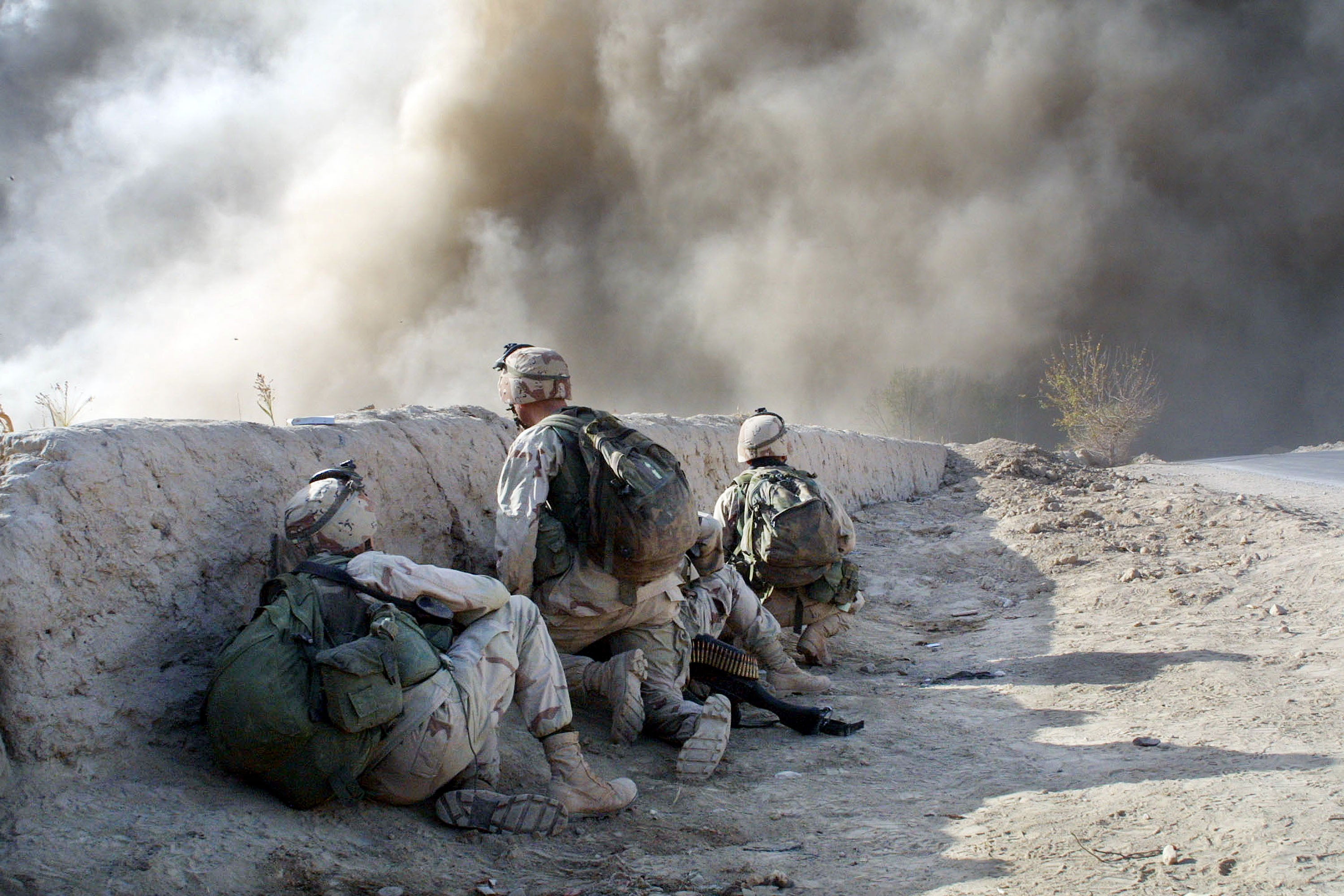Is this the end of western interventionism?
Sean O’Grady explains the erosion of interventionism and globalisation, and how even the looming catastrophic humanitarian disaster in Afghanistan hasn’t been enough to revive the ideas of Blair and Bush


Among the many more pressing and distressing consequences of the west’s withdrawal from Afghanistan is the rather chaotic end to the various doctrines of international humanitarian intervention in the internal affairs of sovereign states. No longer will a superpower – the United States, the Nato alliance or the United Nations (UN) – step in to save lives, protect human rights and suppress terror cells in the way that was attempted for two decades in Afghanistan – and, arguably, in Iraq and elsewhere.
It is something of a turning point, and one that suggests any such future armed incursions to rescue peoples from civil wars, genocide and persecution by their own governments will become more difficult, if not impossible. The present situation in Afghanistan, along with those in Syria, Libya, Yemen and Myanmar (let alone the likes of China, North Korea, Russia/Ukraine and Belarus) and various failed states in Africa, suggests that the west, and principally America, no longer has the will to make such a difference to the welfare of the world.
From the perspective of today, it would seem that the impulse to rescue oppressed peoples reached its zenith around 15 to 20 years ago. It was the product of a series of failed western policies in the early 1990s towards the former Yugoslavia (Bosnia especially) and Rwanda – the failure to prevent genocides being openly pursued by state authorities.
Such was the scale of the betrayal of civilians that the international community, long indifferent to similar episodes (such as that which took place under Pol Pot in Cambodia), was almost shamed into reassessing the rules of international behaviour and intervention. It seemed, for a time, that the UN’s Universal Declaration of Human Rights would be protected by more than words of condemnation and ineffective economic and diplomatic sanctions.
By the time of subsequent, similar crises in Sierra Leone and Kosovo in the late 1990s, Tony Blair – and, reluctantly, the Clinton administration – had shifted the climate of international opinion towards more muscular humanitarian action alongside the military expertise to make it count. In Kosovo, restraining Slobodan Milosevic and the Serbian militias meant, this time around, not just using air power but “boots on the ground” – and it worked.
The “Blair Doctrine” was outlined by the then prime minister in a speech in Chicago in 1999. Couched in the context of globalisation, climate change, international interdependence and the end of the Cold War, he expressed his view thus: “Now our actions are guided by a more subtle blend of mutual self-interest and moral purpose in defending the values we cherish … As John Kennedy put it, ‘Freedom is indivisible, and when one man is enslaved, who is free?’”
Blair went on: “Non-interference has long been considered an important principle of international order. And it is not one we would wish to jettison too readily. One state should never feel it has the right to change the political system of another, or foment subversion or seize pieces of territory to which it feels it should have some claim.
But the principle of non-interference must be qualified in important respects. Acts of genocide can never be a purely internal matter. When oppression produces massive flows of refugees, which unsettle neighbouring countries, then they can properly be described as ‘threats to international peace and security’…”.
Shortly after the trauma of 9/11, the administration of George W Bush adopted the same sort of idea, along with a mission to promote western values and free democratic principles in unlikely places, such as the Gulf states and Saudi Arabia – and, of course, as a casus belli in Iraq; and as further justification for the presence of the international force in Afghanistan.
With his adviser and later secretary of state Condoleezza Rice, Bush formulated a “doctrine” that, if anything, went further than the Blair line. Ms Rice sought to redress the “democratic deficit” even among those who had historically been America’s regional allies in the Middle East. No longer was US policy framed by the adage that “He’s an SOB, but he’s our SOB”.
Slowly, even the UN, so depressingly weak, adopted the new ideas. In 2005, the UN stated: “The international community, through the United Nations, also has the responsibility to use diplomatic, humanitarian and other peaceful means … to help protect populations from genocide, war crimes, ethnic cleansing, and crimes against humanity. In this context we are prepared to take collective action …”.

Since that point, though, the doctrine of the use of force to protect human rights has been weakened to the point of irrelevance. Its sponsors, Blair and Bush, are gone. The long wars in Iraq and Afghanistan have sapped the will of the west generally to intervene, and in Libya, Syria, Yemen and Crimea, it has been increasingly reluctant to do so. Donald Trump was an enthusiastic “America First” anti-globalist and isolationist, openly sceptical about Nato’s usefulness. China and Russia are more assertive, and, for obvious reasons, oppose interference in internal affairs.
In Britain, turning points were the Commons vote against David Cameron’s proposed airstrikes in Syria in 2013 (when Labour opposed the intervention), and Theresa May’s rejection of the Blair/Chicago principles in a speech in Philadelphia in 2017: “The days of Britain and America intervening in sovereign countries in an attempt to remake the world in our own image are over.”
Globalisation has lost support and been partially reversed, in diplomacy no less than in economics. Even the Taliban and the prospect of a humanitarian disaster in Afghanistan haven’t been enough to revive the ideas of Blair and Bush. Would a future genocide?




Join our commenting forum
Join thought-provoking conversations, follow other Independent readers and see their replies
Comments